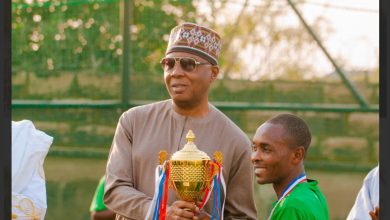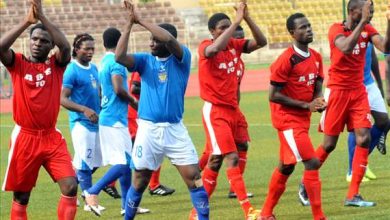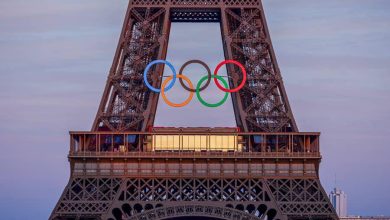7 NFF’s most embarrassing moments

Ineligible Shehu Abdullahi: Nigeria’s World Cup participation came under sharp focus this week after the Super Eagles were found to have played an ineligible Shehu Abdullahi for their final qualifier – a dead rubber against Algeria.
A three-point deduction ultimately didn’t deny Nigeria a spot in Russia next summer, but had the group been a little tighter, it could have been a different story.
Ultimately, the NFF’s negligence hasn’t denied the Eagles a spot at the global showpiece, with federation president Amaju Pinnick vowing to ensure such a fiasco doesn’t occur again.
However, the Abdullahi episode is the latest in a long line of embarrassing chapters involving the NFF and the national side, and as these incidents suggest, don’t hold out too much hope that the federation will clean up their act.
Obafemi Martins’ age saga: Martins was left red faced after an unpardonable error on the Nigeria Football Association website in 2005, which threatened to completely end his reputation with the federation.
The website had erroneously listed the then-Inter Milan striker’s date of birth as 1 May 1978, rather than the correct date of 24 October 1984, placing his potential move to Newcastle United into jeopardy.
It also came as an unwanted distraction for the Super Eagles during their 2006 World Cup qualifying campaign, and they ultimately failed to make it to Germany.
Forgotten kits: Facing Burkina Faso in their final 1992 African Nations Cup qualifier at the National Stadium, Surulere, Lagos, the team organisers inexplicably left the squad’s kits in Ota, where they’d held a training squad in the build up to the clash.
To salvage the situation, the team’s tracksuit bottoms were cut with scissors in order for them to compete.
Ultimately, the scoreline – a 7-1 rout for Nigeria in which Finidi George announced his arrival with a debut goal and three assists – helped detract (somewhat) from the absent-minded kit man!
Super Eagles boycott training at the 2014 World Cup: Nigerians were shocked to receive news of the Super Eagles boycotting training on the eve of their crucial Round of 16 match against France at the World Cup in Brazil.
The players and the federation, led by Alhaji Aminu Maigari, were at loggerheads and failed to settle on a fee for qualifying for the tournament, a situation which soon gained global coverage.
Sensing the players were not going to prepare properly for their upcoming fixture until they got paid, then-President Goodluck Jonathan ordered the country’s sports minister to fly the money – totalling almost $4million – to Brazil in a private jet.
Super Falcons’ bonus protest: In 2004, the Super Falcons had just brought glory to Nigeria, winning a fourth successive African Women Championship.
In the aftermath of the final victory against Cameroon, the players refused to depart South Africa, remaining holed up in their hotel rooms, protesting unpaid bonuses and allowances.
It took the intervention of senior Nigerian government officials to end the embarrassment caused the country, settling the bills incurred in the hotel.
Eventually, then-President Olusegun Obasanjo handed the players N1million each after returning to Nigeria, as another sticky situation was sidestepped.
The Paul Le Guen fiasco: In July 2016, the Nigeria Football Federation announced the appointment of Le Guen as the new head coach of the Super Eagles.
The Frenchman was expected to fill the void created by Sunday Oliseh’s resignation five months earlier, by which point it was imperative the NFF appointed someone due to the imminent World Cup qualifiers – due to kick off in October of that same year.
Bizarrely, Le Guen denied any knowledge of the deal, stating in clear terms he did not sign a contract with the NFF.
The federation, now firmly with egg on their face, stated in a communique that Le Guen had refused to live in Nigeria and objected to targets inserted in his contract.
FIFA age-grade ban for fielding overage players: While Nigeria were still basking in the euphoria of their silver-winning campaign at the 1989 FIFA World Youth Championship in Saudi Arabia, the FIFA hammer fell on the country due to negligence on the part of the administrators.
The trio of Samson Siasia, Andrew Uwe and Dahiru Sadi had featured at the tournaments in Mexico (1983) and Moscow (1985), and subsequently falsified their age in order to participate at the Seoul Olympics in 1988.
Nigeria were handed a two-year ban from competing in U-20 competition, a decision which cost the West African nation the hosting rights for the 1991 FIFA World Youth Championship.





